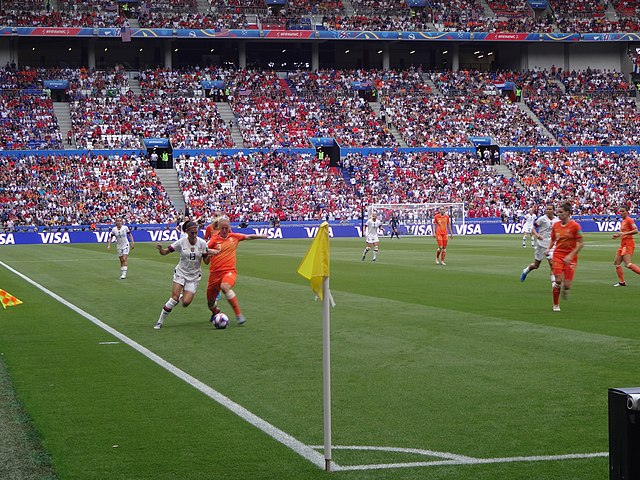
BY LILA PAUL
Imagine receiving a life-changing sports scholarship from the university you have always wanted to attend. Then, the realization sinks in. The state in which the college you wish to attend has a near-total ban on abortion. You must decide whether giving up your rights is worth attending your dream college.
Illegal abortions make up 13 percent of all maternal deaths in the United States yearly. Harrowing stories of back alley abortions are portrayed as a dark moment in the past. However, after the Dobbs decision overturned Roe v. Wade, abortion rights are now state issues. Where abortion was previously illegal, now it is criminalized. Women are now forced to choose between their lives or a prison sentence.
Roe v. Wade protected the right to abortion in the US for almost 50 years. Now, this right depends on geography. Twenty-six states are projected to have extreme limits or total bans on abortions affecting women across the United States, putting their lives in danger. Instead of readily performing abortions to save a mother’s life, doctors now have to make a case to prove a woman needs an abortion, and often the fatal decision is made too late.
The Dobbs decision not only affects pregnant women but also women in sports, limiting the opportunities their athletics provide. For instance, women athletes must consider abortion restrictions when considering athletic scholarships because many colleges that give athletic scholarships are in states with strict abortion laws.
For example, the University of Notre Dame has a renowned athletic program, but it is in Indiana, a state with a near-total ban on abortion, forcing women athlete applicants to give up sports scholarships because of the state’s abortion regulations.
United States fencer Alex Tzou was accepted at Brown University in December of 2021 and shared her thoughts on the new impact that the Dobbs decision has on women athletes applying to college.
“I can’t speak for all women in sports but I think state abortion laws are an additional factor that female athletes are now forced to consider while looking at colleges,” Tzou told the News.
Tzou said if she had been accepted into a school with strict abortion laws, she would consider transferring.
“I would not choose to give up the right to have an abortion in order to go to a specific school,” Tzou told the News.
The Dobbs decision is not only a social issue but also an economic one. Women have to consider abortion rights when thinking about professional job recruitment. If a woman is given a career-changing opportunity in an abortion-restricted state, they may have to pass up on this opportunity. Sports is already an industry where women’s involvement is lower than men’s (Link ), and experts say the Dobbs decision will only exacerbate this economic disparity.
Joeyta Bose, a women’s rights specialist, explains the effect the Dobbs decision has on the gender wage gap. She told the News, “This hurts women’s pay – hindering access to the opportunities, rights, and resources that could transform their lives and their families; widening the gender wage gap; and contributing to increases in poverty rates.”
Women may have to pass up on opportunities that advance their careers with travel bans implemented in some states. Before Roe was overturned, women could travel to any state freely and get higher-paying jobs. Many women are now stuck in their job with a much more difficult route to upward economic mobility.
Bose explained the lack of access and opportunities women face due to the Dobbs decision. “Having less access to reproductive rights can compel women to forgo employment in states with abortion bans or restrictions, preventing them from choosing higher-paying jobs with stronger prospects for advancement.”
Abortion access is an exceptionally intricate issue that affects so many different types of people with diverse backgrounds. People of color and members of the LGBTQ+ community have more difficulty accessing all healthcare, including abortion.
Trans men are also affected by the Dobbs decision. Vidya Sreenivasan, a trans male athlete at Trinity school, told the News that he has been trying to ignore the fact that overturning Roe will make his “very few rights even fewer.”
“Trans men can and do get pregnant,” Sreenivasan told the News, “but we don’t have periods, so we can’t know until we start showing. Having the time for an abortion shortened means that if a guy finds out late, then he can’t do anything about it”.
Roe v. Wade is a complex issue that needs to be addressed in an intersectional way. The Dobbs decision on Roe v. Wade brings back America’s history of unsafe abortion and countless, preventable deaths.






